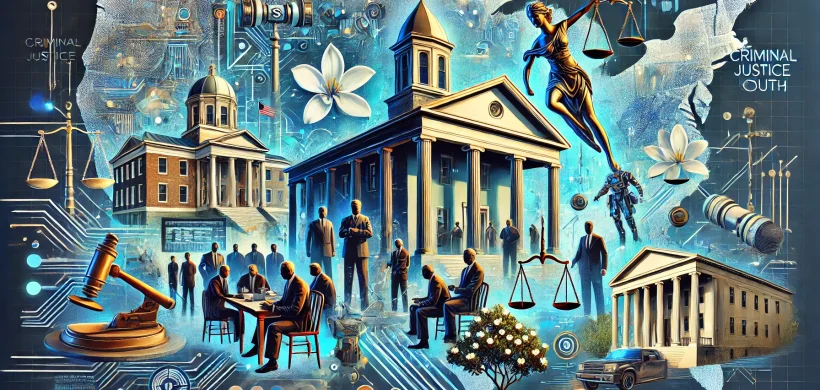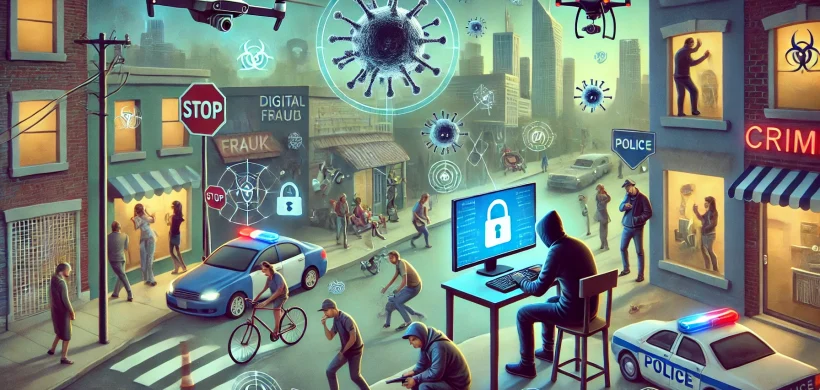The Northeast region of the United States has seen notable criminal justice trends in recent years, particularly in reducing crime rates, advancing reforms, and addressing systemic issues like incarceration for technical violations and electronic monitoring. These efforts reflect broader national debates about fairness, efficiency, and public safety. Decreasing Crime Rates The Northeast has experienced one...
The Pacific Northwest (PNW)—comprising states like Washington, Oregon, and Idaho—has become a hub for innovative and contentious approaches to criminal justice reform. Key themes in recent years include addressing homelessness, drug policy reform, and police accountability. Drug Policy and Its Challenges The PNW has been at the forefront of drug decriminalization efforts. For instance, Oregon’s...
The American South faces distinct challenges in criminal justice, shaped by its unique socio-economic and political context. With some of the highest incarceration rates in the nation, the region highlights critical issues like racial disparities, mass incarceration, and efforts toward reform. Here’s a look at key trends and reforms: Mass Incarceration and Racial Disparities The...
Electronic monitoring (EM) is reshaping the landscape of criminal justice, particularly in the Midwest. This form of digital surveillance, often implemented through GPS ankle monitors or mobile apps, has emerged as a controversial tool for pretrial release, probation, and immigration supervision. Advocates argue that EM offers a less restrictive alternative to incarceration, but critics highlight...
Louisiana recently enacted significant changes to its electronic monitoring (EM) laws, aiming to standardize practices and close gaps in oversight. These changes are expected to transform how monitoring providers operate and enhance public safety through better accountability. Here’s a closer look at the developments and their implications. Key Changes in Louisiana’s Electronic Monitoring Laws 1....
Electronic monitoring (EM) has become an increasingly common alternative to incarceration in the U.S. criminal justice system, raising both opportunities and significant challenges. As states seek to reform the use of this technology, upcoming legislative changes will play a pivotal role in shaping its future. Expanding Use and Criticisms of EM Over the past decade,...
As we approach 2025, the criminal justice system is poised for transformative changes driven by technological advancements, societal shifts, and a reimagining of public safety practices. Policymakers and justice stakeholders are focusing on creating a more equitable, efficient, and adaptive system. Here are the key trends shaping the future of criminal justice. ConclusionThe future of...
Responding to a Request for Proposal (RFP) can be a game-changer for small businesses looking to secure contracts with local governments. However, crafting a compelling and competitive RFP response requires careful planning and attention to detail. Here are some best practices to help small businesses stand out in the RFP process. 1. Thoroughly Understand the...
Small businesses are the backbone of the economy, and staying abreast of current trends is crucial for their survival and growth. As we navigate through 2024, several key trends are emerging that small business owners should keep an eye on to stay competitive and innovative. 1. Digital Transformation and Automation The digital revolution continues to...
The COVID-19 pandemic has reshaped many aspects of society, including the landscape of crime in America. As the nation moves beyond the pandemic, several new crime trends are emerging that reflect broader changes in social and economic conditions. 1. Cybercrime Surge With the pandemic accelerating the shift to digital platforms, cybercrime has surged dramatically. Remote...










